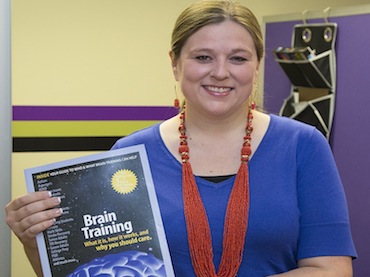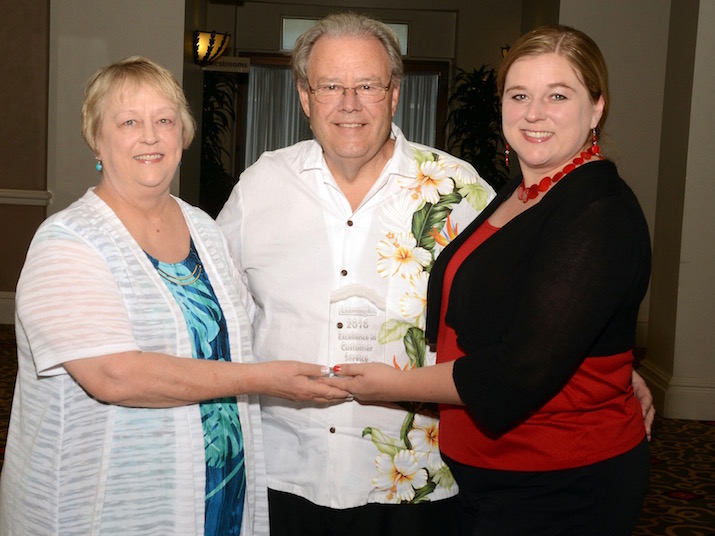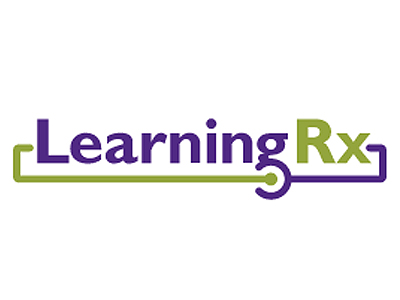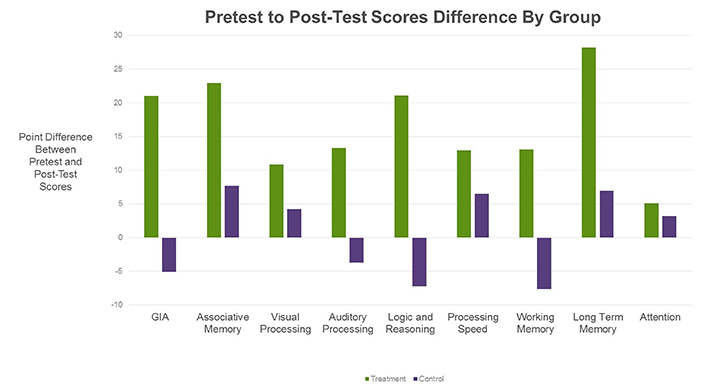- Sections :
- Crime & Public Safety
- Restaurants & Food
- Sports
- More
Categories
October is National Dyslexia Awareness month

October is National Dyslexia Awareness month: The Woodlands LearningRx provides insight into the learning disorder
Dyslexia remains one of the most misunderstood learn disabilities – despite being a common diagnosis.
“Contrary to some stereotypes, dyslexia is not simply reading words backwards, nor is it a marker for intelligence or determination,” Kim Bellini, owner of The Woodlands LearningRx, explained.
Dyslexia simply means “poor with words” or “trouble with reading,” Bellini said.
The International Dyslexia Association has declared October National Dyslexia Awareness month. The group says that warning signs may include:
Trouble learning letters and their sounds
Difficulty learning to speak
Difficulty organizing written and spoken language
Trouble memorizing number facts or solving math equations
Difficulty reading quickly enough to comprehend
Trouble persisting with and comprehending longer reading assignments
Difficulty spelling
Trouble learning a foreign language
Easily frustrated and emotional about school reading or testing
Dyslexia occurs in people of all backgrounds and intellectual levels, Bellini explained.
“People who are very bright and talented are just as likely to be dyslexic,” Bellini said. “They are often capable or even gifted in areas that do not require strong language skills, such as art, computer science, design, drama, electronics, math, mechanics, engineering, music, physics, sales and sports.”
She said that formal testing of reading, language, and writing skills is the only way to confirm a diagnosis of suspected dyslexia.
While the exact causes of dyslexia remain unclear, studies show differences in the way the brain of a dyslexic person develops and functions, Bellini said.
The National Institutes of Health determined that 88 percent of all learning-to-read problems in dyslexics were caused by a weakness in one specific cognitive skill: phonemic awareness, which is the ability hear, blend, unglue and manipulate sounds in a word.
Cognitive skills testing generally confirms that most people with dyslexia also have weaknesses in attention and working memory, Bellini added.
“They often find it difficult to juggle processing and storing incoming information,” she said. “This makes it hard to analyze, organize and complete a task.”
Bellini said that the earlier the problem is detected, the sooner students can begin strengthening cognitive skills.
“Dyslexia does not have to be a permanent obstacle,” she said. “Studies show that the brain can change and improve at almost any age.”
Brain-training programs at LearningRx work to eliminate the symptoms of dyslexia by strengthening weak cognitive skills – including the key skill of phonemic awareness.
When cognitive skills are strengthened, reading and learning can become fast, easy and even fun, Bellini said.
“Because there is no ‘stereotypical dyslexic,’ the diagnosis is often missed and students may suffer for years before they’re diagnosed and get help,” she added. “A cognitive skills assessment is the best way to determine if a cognitive weakness is to blame.”
Located at 4840 West Panther Creek, The Woodlands LearningRx’s helps children of all abilities to reach their potential – by developing individualized programs to strengthen attention, memory, processing speed and problem solving. To learn more about The Woodlands LearningRx, visit their website.
The Woodlands LearningRx provides insight into the learning disorder.
Dyslexia remains one of the most misunderstood learn disabilities – despite being a common diagnosis.
“Contrary to some stereotypes, dyslexia is not simply reading words backwards, nor is it a marker for intelligence or determination,” Kim Bellini, owner of The Woodlands LearningRx, explained.
Dyslexia simply means “poor with words” or “trouble with reading,” Bellini said.
The International Dyslexia Association has declared October National Dyslexia Awareness month. The group says that warning signs may include:
Trouble learning letters and their sounds
Difficulty learning to speak
Difficulty organizing written and spoken language
Trouble memorizing number facts or solving math equations
Difficulty reading quickly enough to comprehend
Trouble persisting with and comprehending longer reading assignments
Difficulty spelling
Trouble learning a foreign language
Easily frustrated and emotional about school reading or testing
Dyslexia occurs in people of all backgrounds and intellectual levels, Bellini explained.
“People who are very bright and talented are just as likely to be dyslexic,” Bellini said. “They are often capable or even gifted in areas that do not require strong language skills, such as art, computer science, design, drama, electronics, math, mechanics, engineering, music, physics, sales and sports.”
She said that formal testing of reading, language, and writing skills is the only way to confirm a diagnosis of suspected dyslexia.
While the exact causes of dyslexia remain unclear, studies show differences in the way the brain of a dyslexic person develops and functions, Bellini said.
The National Institutes of Health determined that 88 percent of all learning-to-read problems in dyslexics were caused by a weakness in one specific cognitive skill: phonemic awareness, which is the ability hear, blend, unglue and manipulate sounds in a word.
Cognitive skills testing generally confirms that most people with dyslexia also have weaknesses in attention and working memory, Bellini added.
“They often find it difficult to juggle processing and storing incoming information,” she said. “This makes it hard to analyze, organize and complete a task.”
Bellini said that the earlier the problem is detected, the sooner students can begin strengthening cognitive skills.
“Dyslexia does not have to be a permanent obstacle,” she said. “Studies show that the brain can change and improve at almost any age.”
Brain-training programs at LearningRx work to eliminate the symptoms of dyslexia by strengthening weak cognitive skills – including the key skill of phonemic awareness.
When cognitive skills are strengthened, reading and learning can become fast, easy and even fun, Bellini said.
“Because there is no ‘stereotypical dyslexic,’ the diagnosis is often missed and students may suffer for years before they’re diagnosed and get help,” she added. “A cognitive skills assessment is the best way to determine if a cognitive weakness is to blame.”
Located at 4840 West Panther Creek, The Woodlands LearningRx’s helps children of all abilities to reach their potential – by developing individualized programs to strengthen attention, memory, processing speed and problem solving. To learn more about The Woodlands LearningRx, visit their website.
Comments •















